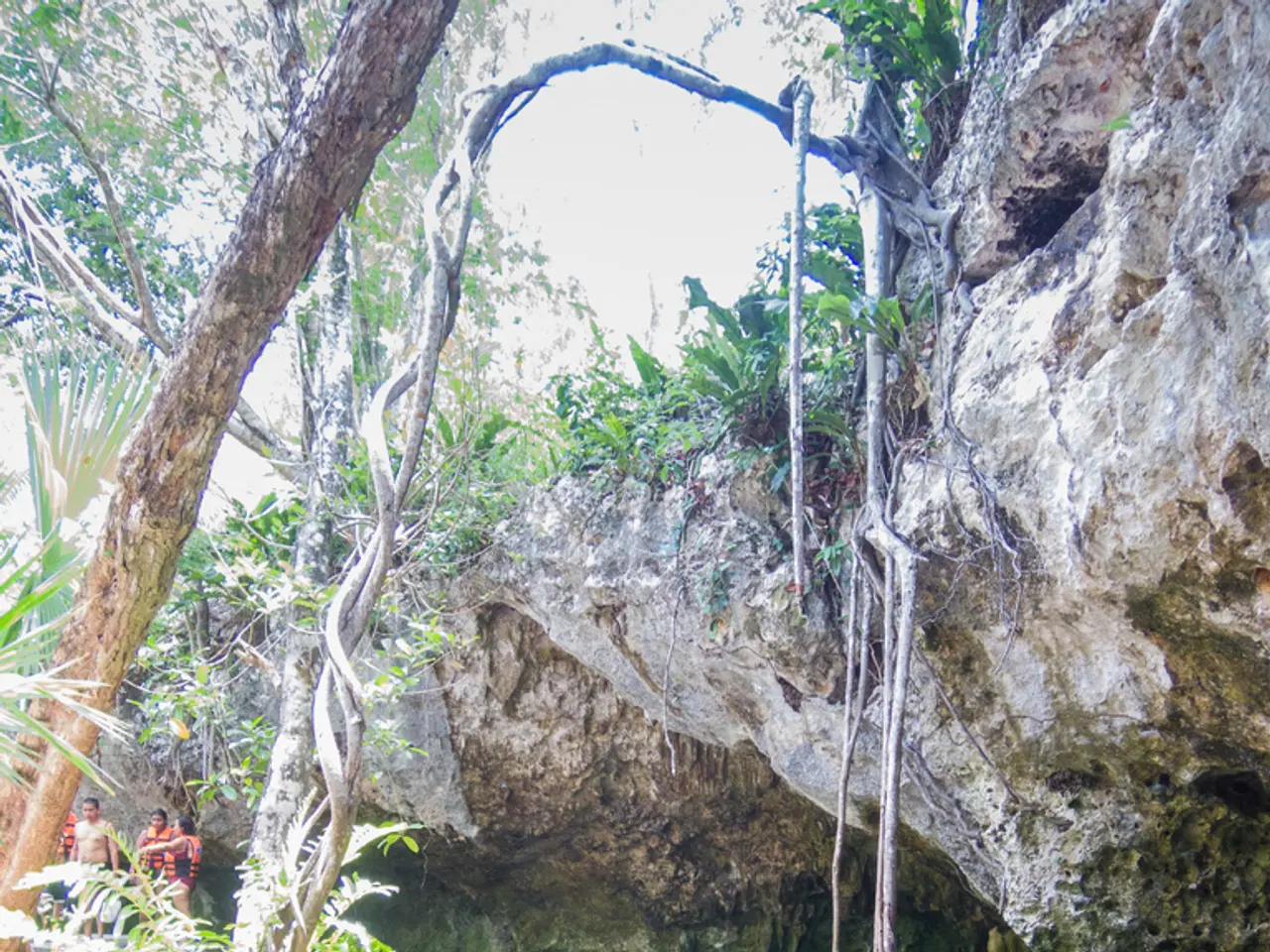The duration humans can survive without water consumption
In the face of dire circumstances such as shipwrecks or desert treks, the human body's ability to survive without water can vary significantly. This resilience is heavily influenced by environmental conditions, physical activity levels, and overall health status.
In hot and humid environments, for instance, the body struggles to cool itself efficiently, leading to increased sweating and further dehydration. Conversely, in temperate climates, survival time might be closer to the typical 3-day limit. At high altitudes, increased fluid loss due to higher respiratory rates can also reduce survival time.
Increased physical activity, especially in hot conditions, leads to more fluid loss through sweating. This necessitates more water intake to prevent dehydration, which can decrease survival time if not addressed. Resting or minimizing activity can help extend survival time by reducing fluid loss.
Individuals with certain health conditions, such as diabetes or kidney disease, may be at higher risk due to their bodies being less capable of coping with fluid imbalances. Similarly, those with fever, urinary tract infections, or gastrointestinal issues may experience increased fluid loss, reducing survival time without water. A well-nourished person might survive longer without water than someone malnourished, as they have more energy reserves.
While the general rule is that humans cannot survive more than a few days without water, survival time is heavily influenced by these factors. In adverse conditions such as hot, humid environments or during high physical activity, survival time can be significantly reduced, potentially to 1-2 days. In favorable conditions, such as cool, low-humidity environments with minimal activity, survival might extend slightly beyond 3 days.
Children and older adults are more vulnerable to dehydration due to differences in body composition and reduced efficiency in regulating water balance. Understanding these factors can help individuals prepare and make informed decisions in survival situations.
[1] Mayo Clinic. (2021). Dehydration. https://www.mayoclinic.org/diseases-conditions/dehydration/symptoms-causes/syc-20371780 [2] American Heart Association. (2021). Heat-Related Illnesses. https://www.heart.org/en/health-topics/heart-attack/about-heart-attacks/heat-related-illnesses [3] National Health Service. (2021). Dehydration. https://www.nhs.uk/conditions/dehydration/ [4] World Health Organization. (2021). Dehydration. https://www.who.int/news-room/fact-sheets/detail/dehydration [5] Centers for Disease Control and Prevention. (2021). Heat-Related Illnesses. https://www.cdc.gov/disasters/extremeheat/about/index.html
- In the realm of health-and-wellness, it's crucial to understand that consuming adequate water and nutrition is vital for survival, especially during physically demanding activities or in harsh environments.
- Nutrition plays a significant role in adaptability; a well-nourished individual might be able to endure without water for a longer period than someone malnourished, as they have more energy reserves.
- The science of nutrition can help us understand that certain health conditions can make individuals more susceptible to dehydration and its adverse effects, such as diabetes, kidney disease, fever, urinary tract infections, or gastrointestinal issues.







